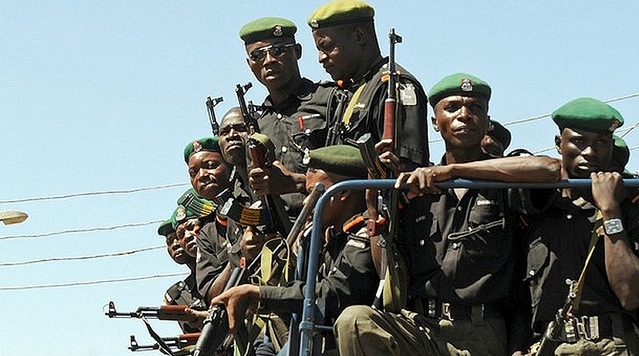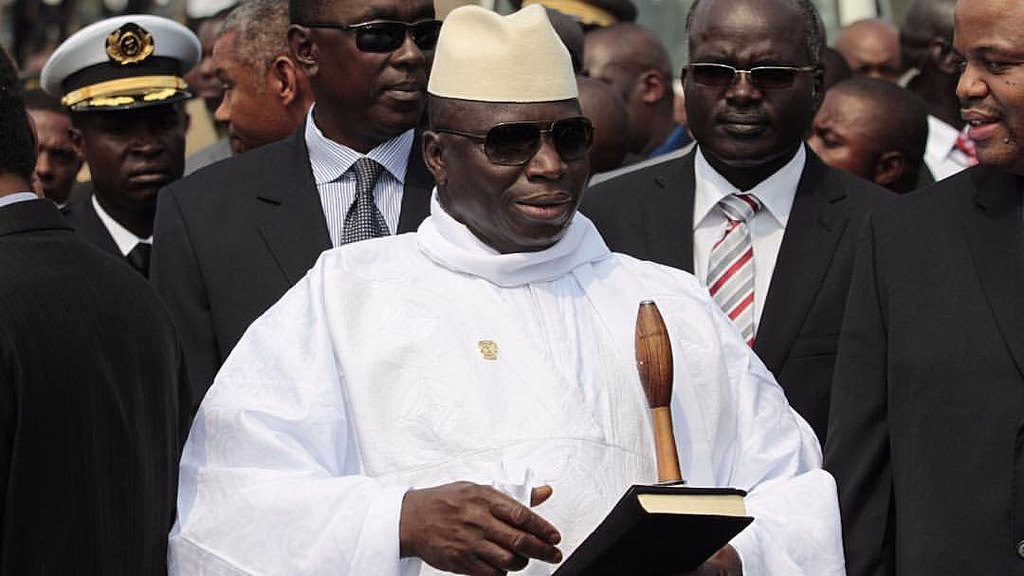Ayanna Nahmias, Editor-in-ChiefLast Modified: 14:16 PM EDT, 8 May 2012
 MONROVIA, Liberia – Across Africa water shortages and drought are an increasingly prevalent phenomenon. Some instances are a consequence of natural disaster, but in some cases clean water is being hoarded by powerful factions and used to extort impoverished people, or as a means to subjugate a war-weary population.
MONROVIA, Liberia – Across Africa water shortages and drought are an increasingly prevalent phenomenon. Some instances are a consequence of natural disaster, but in some cases clean water is being hoarded by powerful factions and used to extort impoverished people, or as a means to subjugate a war-weary population.
According to the World Health Organization, “Africa has the lowest total water supply coverage of any region, with only 62% of the population having access to improved water supply. This figure is based on estimates from countries that represent approximately 96% of Africa's total population.
The situation is much worse in rural areas, where coverage is only 47%, compared with 85% coverage in urban areas. Sanitation coverage in Africa also is poor, with only Asia having lower coverage levels. Currently, only 60% of the total population in Africa has sanitation coverage, with coverage varying from 84% in urban areas to 45% in rural areas.” (Source: WHO)
This endemic problem continues unabated despite the United Nations passing Resolution: 64/292 on 28 July 2010, which decreed that every human being has the right to have access to water and proper sanitation, and to deny access to these is deemed a human rights abuse.
The West African nation, Liberia, is a country of firsts and lasts, the first African nation to have elected a female head of state, President Ellen Johnson-Sirleaf, and last according to the UN Human 2011 Development Index which ranks it at the bottom percentile of all countries and territories at 182 out of 187.
Monrovia, the capital of Liberia, is home to 1.1 million people in a country with a total population of nearly 4 million who live on less than US$1 per day according to 2010 World Bank data. As with most countries there is a growing divide among the rich and the poor, but in Liberia, unlike other nations with social service nets, the poor are subjected abject poverty exacerbated by abysmal living conditions.
Most of the city’s residents live in burned out buildings without access to running water, sanitation, or potable drinking water. Many have to walk miles to fill numerous small plastic jugs, large 'jerry' jugs, or empty petrol barrels which can weigh from 40 lbs. (80 Kgs) to 70 lbs. (32 Kgs) once filled. (Source: The Water Project.org)
Women, who are typically responsible for collecting the water, are often forced to walk miles to communal water pumps or rivers. In the case of water pumps, the water is often untreated, and in cases where river water is used, there is a high probability of exposure to water-borne illnesses which can be as life threatening as dehydration.
In West Africa, during what is called the Harmattan season, dry and dusty West African trade wind blows south from the Sahara, which starts in early November and last through April. During this time water tables also fall precipitously low, forcing people to walk longer distances to find water which has not been muddied by the fine particulates of sand which cover everything. Those who cannot afford to pay for water, or do not possess the constitution to walk the many miles to transport water to and from hand pumps and wells are most at risk of death.
Because of the lack of response from the government to this pressing human rights issue, many entrepreneurs, some unscrupulous, have developed profitable businesses selling bottled water at grossly inflated prices to city dwellers. The water which they sell is often untreated though marketed to the contrary.
According to the Liberian Ministry of Information, Culture and Tourism (MICAT), in the vast slums of Monrovia water is sold on the black market where “five liters of clean water is sold for LD$ 20 Liberian dollars (US$0.28); while the same quantity is sold for LD $40-50 in areas with severe shortage of water.”
The lack of access to clean water and a working sanitation system is one of many complaints against President Sirleaf’s government. During her first term stated that if elected her government had “plans to construct 25 borehole wells in five counties to increase access to clean water, construct or rehabilitate 150 sanitation facilities in 10 of the 15 counties, and repair hand pumps, among other things. (Source: MICAT)
Though this did not materialize, President Sirleaf’s government cannot bear the entire blame, since the major infrastructure which would have been in place to repair and facilitate access to clean water and sanitation were destroyed during the nearly 11 years of constant civil war which began under Charles Taylor, the recently convicted war criminal and former president of Liberia.
According to the Liberian Ministry of Health and Social Welfare statistics, about 100,000 children under five and infants die annually from water borne diseases and related illnesses. Because of the lack of access to sanitation, many people are forced to relieve themselves in outhouses, ‘hanging toilets,’ or whatever secluded place they can find.
This results in the contamination of ground water and provides a fertile breeding source for various transmission vectors via insect or human to human contact. Some of the diseases to which people without proper access to clean drinking water can be exposed to are:
1. Diarrhea
2. Dysentery
3. Enteric Fever
4. Worm Infection
5. Louse Borne Fevers
Equally debilitating are the infectious diseases the populace can be exposed to as a consequence of lack of adequate sanitation:
1. Soil Transmitted Helminthes
2. Tape Worm
3. Filariasis (Elephantiasis)
4. Schistosomiasis
(Source: http://content.alterra.wur.nl/Internet/webdocs/ilri-publicaties/publicaties/Pub52/pub52-h4.0.pdf)
As stated in the beginning of this post, the problem of access to clean water is not unique to Liberia, or West Africa; however, it seems prudent that a implementing a substantive, quantitative, and verifiable resolution to this issue is essential to the economic recovery and growth of the country.
Now that oil reserves have been identified off the coast, it is incumbent upon President Sirleaf’s government to make sure that any proceeds from the sale of natural resources is poured back into the country to make the necessary improvements that will ultimately strengthen the country both economically, socially, and politically.
In her second term, President Sirleaf campaigned on an anti-corruption platform and it remains to be seen if she and her government do the right thing for their countrymen or like other African leaders, choose instead to line their pockets while their citizens ‘eat dust.”


























